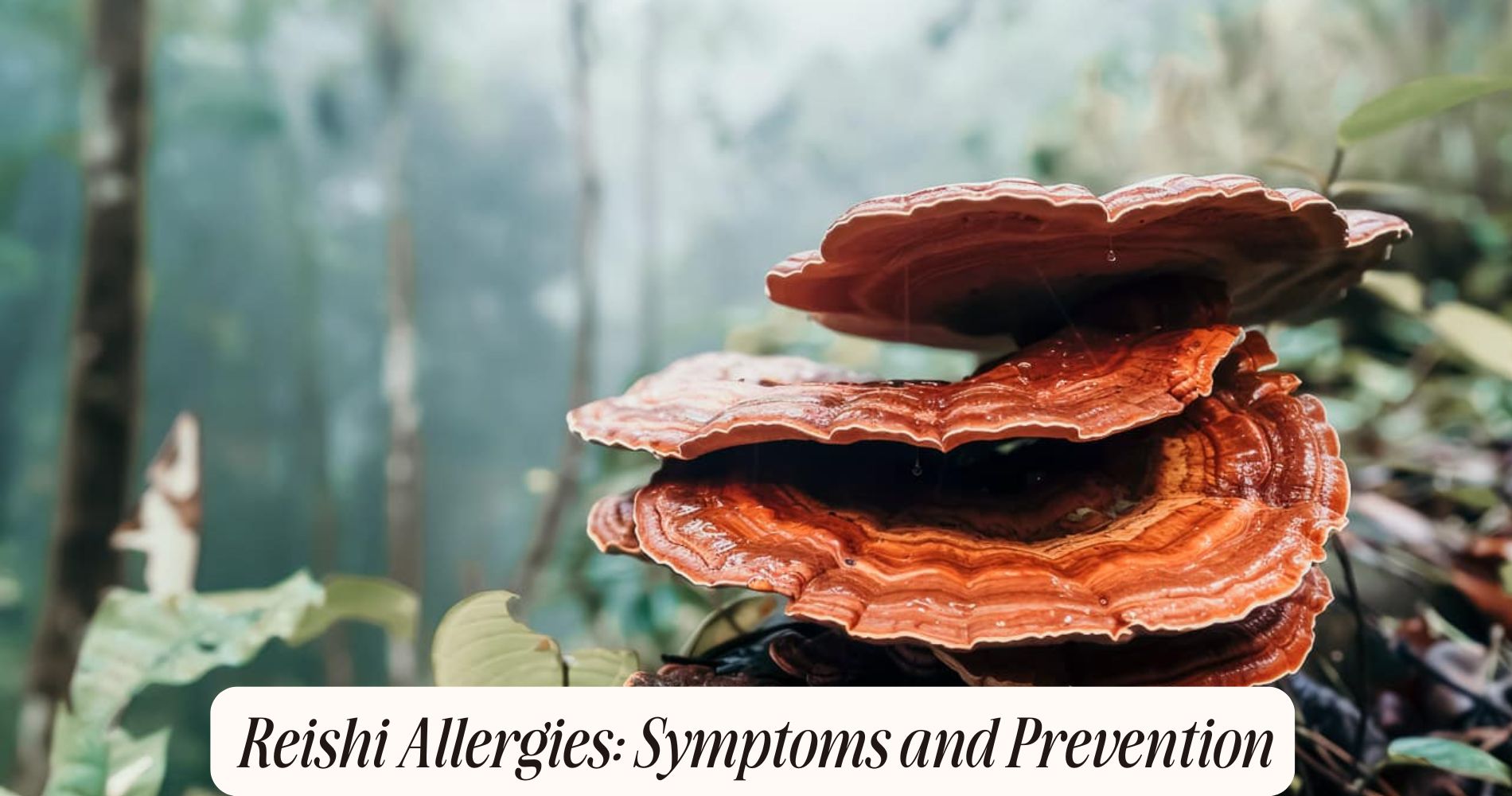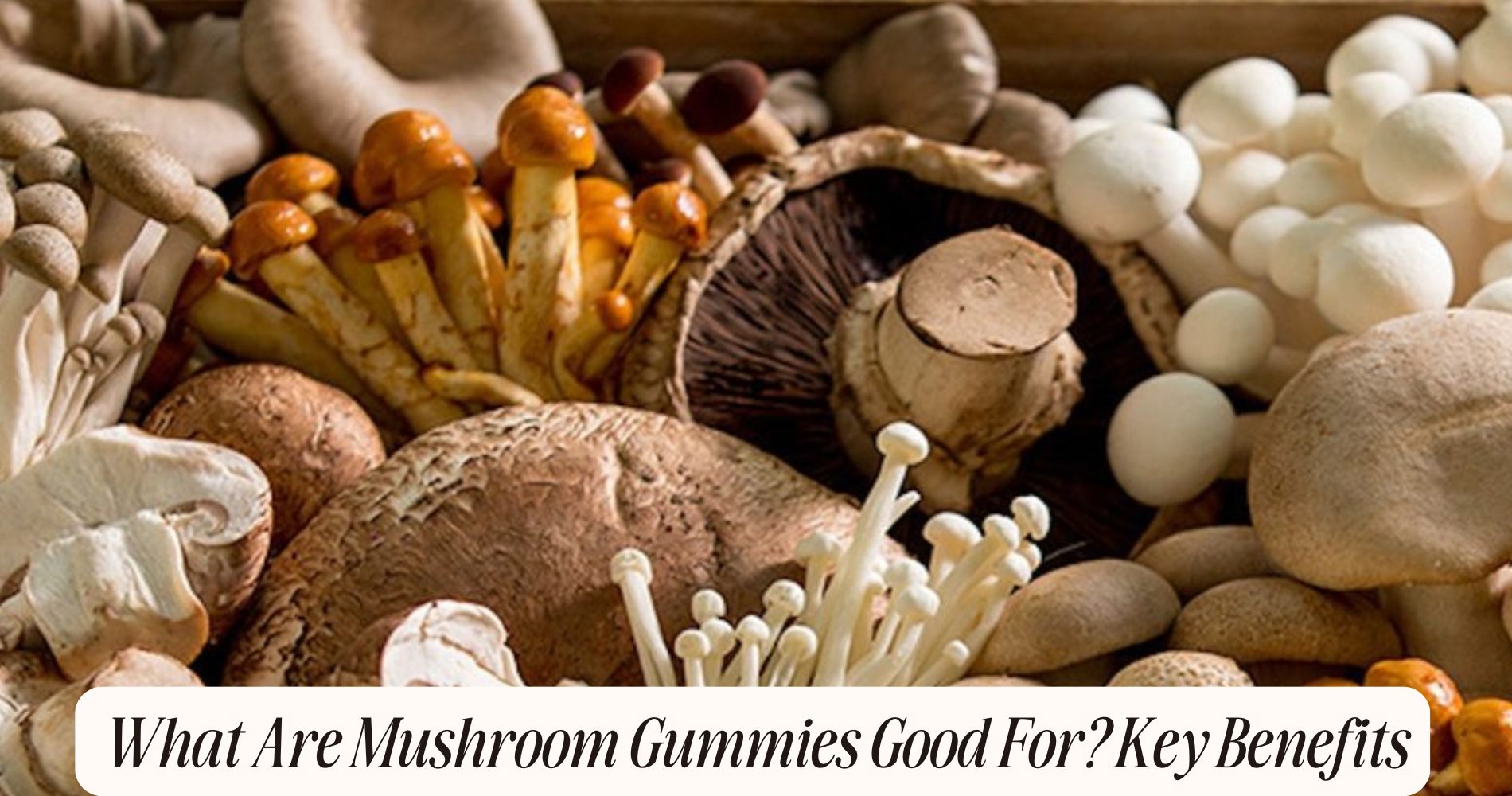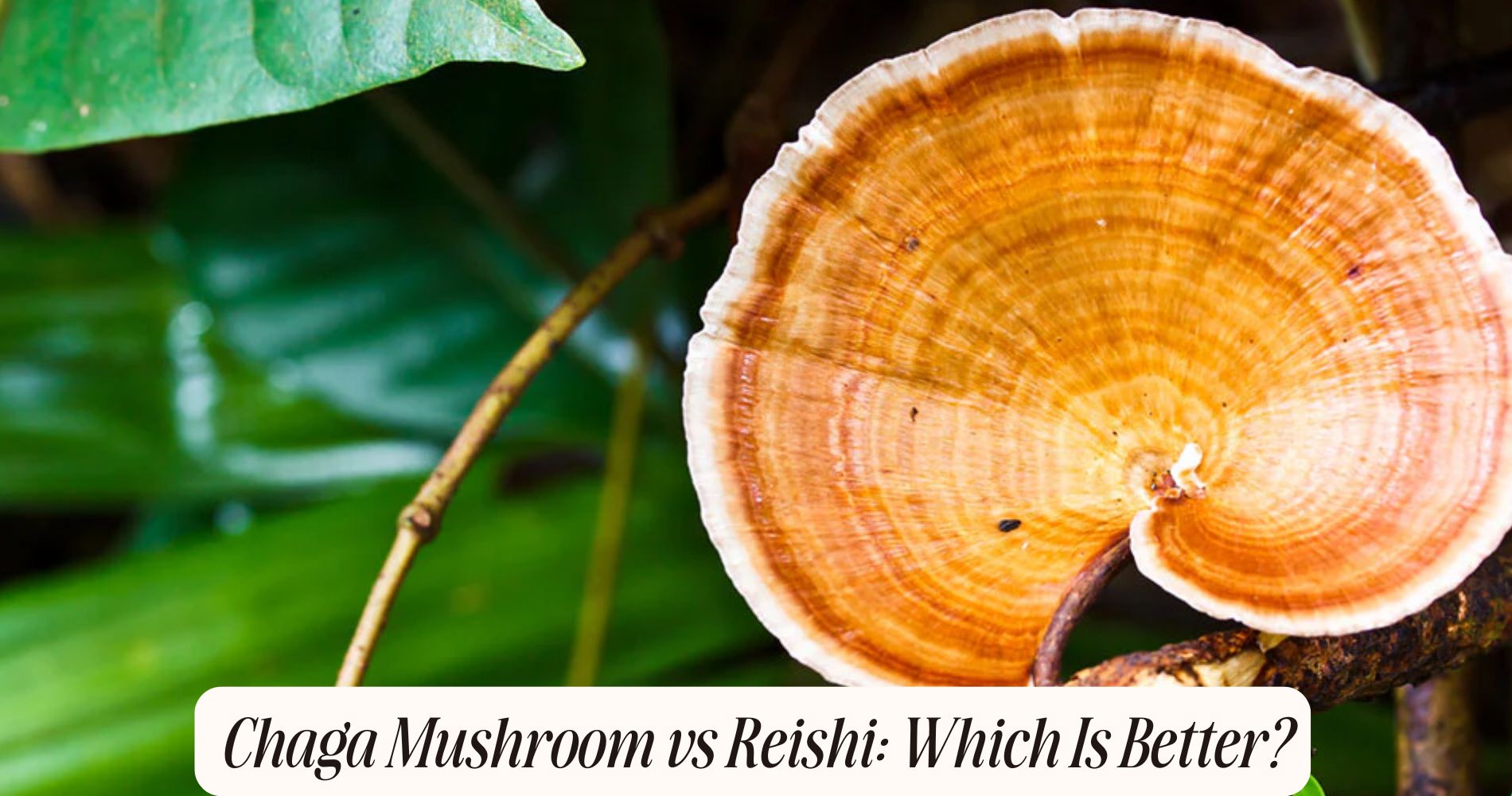
Reishi Allergies: Symptoms and Prevention
Understanding Reishi Mushrooms
Reishi mushrooms, scientifically known as Ganoderma lucidum, are a type of medicinal fungus renowned for their health benefits. These mushrooms have been utilized for centuries in traditional medicine, particularly in Asian cultures, due to their potential to enhance overall well-being.
You might find reishi beneficial for boosting your immune system, reducing stress, and improving sleep quality. Their bioactive compounds, such as triterpenes and polysaccharides, contribute to these effects, making them a valuable addition to health regimens.

Reishi cultivation is an important aspect of making these mushrooms accessible. They typically grow on decaying wood and are best cultivated on substrates like sawdust or logs.
You can cultivate reishi at home or commercially, ensuring ideal conditions such as moisture, temperature, and airflow for successful growth. By understanding the specific requirements for reishi cultivation, you can maximize yield and potency.
Whether you're considering reishi for its health benefits or exploring home cultivation, knowledge about these mushrooms is vital. With careful attention, you can harness the full potential of Ganoderma lucidum in your wellness journey.
Common Allergy Symptoms
Allergy symptoms can manifest in various ways, and it's important to recognize them early for effective management. When you're exposed to substances like reishi mushrooms, your immune response can trigger a range of reactions. Common symptoms include nasal congestion, sneezing, and itchy or watery eyes, similar to those experienced during seasonal allergies.
You might also notice skin reactions such as rashes, hives, or eczema. These symptoms occur when your body mistakenly identifies harmless proteins in reishi as threats, prompting an exaggerated immune response.
Gastrointestinal symptoms like nausea, vomiting, or diarrhea can also occur, especially if you ingest the mushroom.

In more severe cases, you may experience anaphylaxis, a life-threatening condition characterized by difficulty breathing, swelling of the throat, and rapid pulse. Recognizing these symptoms is important, as they can escalate quickly.
If you suspect you have a reishi allergy, monitoring your reactions and consulting with a healthcare professional is critical. By understanding these common allergy symptoms, you can take proactive steps to avoid exposure and manage your health effectively.
Identifying Reishi Allergies
Recognizing the signs of a reishi allergy requires careful observation of your body's reactions after exposure. If you've recently started using reishi supplements or products, monitor any unusual symptoms that arise. Common indicators include skin rashes, itching, or gastrointestinal issues like nausea or diarrhea. These symptoms may appear shortly after consumption or even hours later, so it's crucial to keep track of when they occur.
Understanding reishi benefits can sometimes lead to misconceptions about its safety. Many believe that because reishi is a natural supplement, it can't cause allergies. However, individual reactions can vary greatly, and just because a substance is natural doesn't mean it's risk-free for everyone.
Pay attention to how your body reacts, especially if you have a history of allergies to other fungi or related compounds. If you suspect a reishi allergy, consider eliminating it from your diet and consulting a healthcare professional for guidance.
They may recommend allergy testing to determine specific sensitivities. By being vigilant and informed, you can differentiate between beneficial effects and adverse reactions, ensuring your health remains a priority.
Risk Factors for Allergies
Certain risk factors can greatly increase your likelihood of developing allergies to reishi mushrooms. One significant factor is genetic predisposition. If you have a family history of allergies, particularly to mushrooms or fungi, your chances of developing an allergy to reishi are heightened.
Genetic markers can influence your immune system's response, making it more reactive to certain proteins found in reishi.

Environmental factors also play an important role. Exposure to allergens in your surroundings, such as pollen, dust mites, or mold, can sensitize your immune system. If you've previously reacted to these allergens, your body may be primed to respond similarly to reishi.
Additionally, dietary habits can impact your sensitivity. Frequent consumption of other fungi may increase your overall risk of developing an allergy to reishi due to cross-reactivity.
Diagnosis and Testing
To accurately identify a reishi allergy, you'll need to recognize the symptoms associated with allergic reactions.
Various testing methods, including skin prick tests and blood tests, can help confirm your allergy.
Understanding these diagnostic tools is essential for effective management and treatment.
Allergic Reaction Identification
Identifying an allergic reaction to Reishi mushrooms can be essential for managing symptoms effectively. When you consume or come into contact with Reishi, you might experience various allergic responses. Common symptoms include skin rashes, itching, gastrointestinal distress, and respiratory issues.
Understanding these symptoms can help you differentiate between typical reactions to mushroom types and true allergic responses. If you suspect an allergy, pay attention to the timing and nature of your symptoms. Symptoms often appear shortly after exposure to Reishi, especially if you've recently started using it for its purported reishi benefits.
Documenting your experiences can provide valuable information when consulting a healthcare professional. It's important to note that allergic reactions can vary considerably between individuals, influenced by your unique immune response. Some may experience mild discomfort, while others could face severe reactions like anaphylaxis.
Identifying these reactions promptly can prevent complications and guarantee timely intervention. Always consider keeping a detailed food diary, noting any reactions after consuming Reishi, to assist in identifying patterns. This approach empowers you to take control of your health and make informed decisions regarding your use of Reishi mushrooms.
Testing Methods Available
Several reliable testing methods are available to diagnose allergies to Reishi mushrooms. You can start with skin prick tests, where a small amount of Reishi extract is applied to your skin, and a reaction is observed. If you develop a raised bump, it may indicate an allergy.
Another effective method is the specific IgE blood test, which measures the concentration of antibodies your immune system produces in response to Reishi exposure.

In addition, patch testing is often employed for delayed reactions. In this method, small amounts of allergens are applied to patches placed on your skin, and reactions are monitored over several days. These allergy assessments help determine sensitivity levels to Reishi and can guide your dietary choices.
It's vital to consult an allergist for accurate diagnosis and testing techniques tailored to your specific symptoms. They can interpret the results and suggest the best course of action, whether that's avoiding Reishi or considering further treatments.
Understanding these methods equips you with the knowledge to manage potential allergies effectively.
Prevention Strategies
To prevent allergic reactions to Reishi mushrooms, you should avoid all products containing this ingredient.
Consulting with healthcare professionals about your specific allergies can help you identify safe alternatives.
Taking these proactive steps greatly reduces your risk of exposure and potential health issues.
Avoiding Reishi Products
Maneuvering the world of dietary supplements requires vigilance, especially for those with known allergies. To effectively avoid reishi products, you need to become adept at reading labels and ingredient lists. Many supplements, including herbal blends and immune boosters, may contain reishi, so scrutinizing these products is essential for your allergy management.
Start by identifying and avoiding popular forms of reishi, like capsules, powders, and teas. When shopping, opt for reishi substitutes such as chaga or lion's mane, which can provide similar health benefits without the risk of allergic reactions.
It's also wise to avoid cross-contamination; verify that any food or supplement you consume is processed in facilities that don't handle reishi.
Educate yourself about the various names and forms reishi might be labeled under, as this knowledge is critical in preventing accidental exposure. If you're dining out, don't hesitate to inquire about ingredients in dishes that may contain reishi.
Consulting Healthcare Professionals
Consulting healthcare professionals is an essential step in managing reishi allergies and developing effective prevention strategies. When you suspect an allergy, seeking specialized healthcare guidance can help you navigate symptoms and risk factors. An allergist or immunologist can perform tests to confirm your allergy to reishi, guaranteeing you receive accurate diagnosis and tailored advice.
During your consultation, discuss your medical history and any previous reactions to reishi products. This information aids in crafting an individualized allergy management plan, which may include avoidance strategies and emergency response protocols, such as carrying an epinephrine auto-injector if necessary.

Furthermore, healthcare professionals can offer insights into potential cross-reactivities with other mushrooms or fungi, helping you make informed choices about your diet and supplements. They may also recommend allergy testing to identify additional sensitivities, broadening your understanding of potential triggers.
Regular follow-ups with your healthcare provider guarantee your allergy management plan remains effective as your circumstances or symptoms change. By actively engaging with healthcare professionals, you enhance your ability to prevent allergic reactions and maintain your overall well-being.
Alternative Options to Consider
Considering your sensitivity to reishi mushrooms, exploring alternative options can provide effective support without triggering allergic reactions. Several natural supplements can serve as viable substitutes, particularly regarding immune support.
One option is astragalus root, known for its ability to enhance immune function and provide adaptogenic benefits. This herb may help the body resist stress and bolster overall health.
Another alternative is elderberry, which has been shown to support immune response and reduce the duration of colds and flu.
You might also consider using echinacea, a well-researched herb that can stimulate your immune system and help fend off respiratory infections.
Additionally, maitake and shiitake mushrooms can offer beneficial properties without the risk associated with reishi. These mushrooms are rich in polysaccharides that may enhance immune function and provide overall wellness benefits.
Lastly, vitamin C and zinc are essential nutrients for immune health. Incorporating these into your daily regimen may help reinforce your immune system without the risk of allergic reactions.
Always consult with a healthcare professional before starting any new supplement to guarantee safety and efficacy tailored to your individual needs.
Frequently Asked Questions
Can Reishi Mushrooms Interact With Medications?
Reishi mushrooms can interact with medications, potentially affecting their efficacy. When considering Reishi benefits, it's essential to consult your healthcare provider about appropriate Reishi dosage to avoid complications with your current medications.
Are Reishi Allergies Hereditary or Genetic?
Reishi allergies aren't strictly hereditary, but a genetic predisposition may exist. If you have a family history of mushroom allergies, it's wise to approach reishi mushrooms cautiously, as your risk might be higher.
What Is the Shelf Life of Reishi Products?
Reishi products typically have a shelf life of 1 to 3 years, depending on storage conditions. For ideal reishi storage, keep them in a cool, dry place away from direct sunlight to prevent product expiration.
Can Cooking Reishi Mushrooms Reduce Allergic Reactions?
Cooking reishi mushrooms might reduce allergic reactions, as certain cooking methods can break down allergenic compounds. However, you should still undergo allergy testing to guarantee safety and determine your specific sensitivity to reishi products.
Are There Specific Populations More Prone to Reishi Allergies?
Certain high-risk groups, like those with existing mushroom allergies or compromised immune systems, might be more prone to reishi allergies. Allergy testing can help identify your susceptibility and guide your consumption decisions effectively.
Conclusion
In summary, if you suspect an allergy to reishi mushrooms, it's vital to recognize the symptoms and identify risk factors. Seeking a proper diagnosis through testing can help confirm your allergy. To prevent adverse reactions, avoid reishi products and consider alternative options that suit your health needs. Staying informed about your sensitivities guarantees you can enjoy a safe and healthy lifestyle without the risk of allergic reactions. Always consult a healthcare professional for personalized advice.




